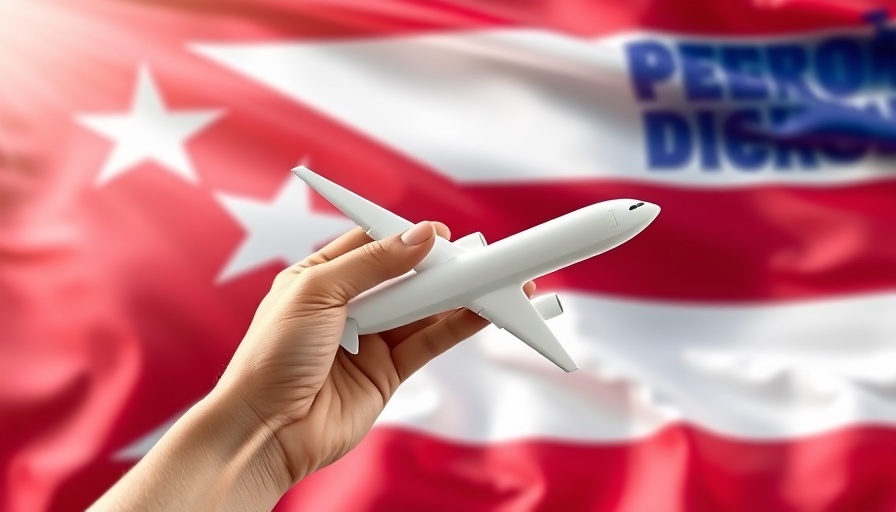
The Urgency of Sustainable Tourism in the Mekong Region
The Greater Mekong Subregion has seen a significant surge in tourism, bringing both opportunities and challenges. As countries like Cambodia, Vietnam, Laos, Thailand, Myanmar, and China experience increasing tourist footfalls, the question arises: How can we manage this growth sustainably? Following the lead-up to the Mekong Tourism Forum 2025, themed 'Sustainable Tourism', stakeholders are gearing up to tackle these pressing issues head-on.
Embracing the Green Revolution: A Closer Look at Initiatives
Several initiatives are currently in progress to promote sustainable tourism across the Mekong. For instance, in Vietnam, the introduction of a 'Golden Visa' aims to encourage long-term visitors who prioritize eco-friendly practices. This visa is designed to attract tourists who have a commitment to sustainability, allowing them to stay longer while supporting local economies without overstretching resources.
Meanwhile, Laos is making strides with its 'Green Destination' initiative, aiming to protect its natural and cultural heritage. Through sustainable tourism practices, Laos seeks to enhance the quality of life for its residents while preserving its breathtaking landscapes and diverse cultural sites. These examples exemplify the proactive approaches being taken in the region.
Balancing Cultural Heritage with Modern Growth
As the number of visitors expands, the preservation of cultural and community integrity becomes paramount. Local customs and traditions at risk of dilution often depend on how tourism develops. By engaging local communities in tourism planning, countries in the Mekong are ensuring that tourism profits benefit the natives, fostering a sense of ownership and responsibility toward their heritage.
Furthermore, it is essential to educate tourists on local customs and the environmental impact of their travels, fostering a respectful and reciprocal relationship between visitors and host communities. Encouraging cultural exchange rather than commodification can create richer experiences for travelers while safeguarding the cultural tapestry of the region.
Exploring the Intrinsic Value of Eco-tourism
With rising concerns for our planet, many travelers today prioritize sustainability. A shift is noticeable in consumer behavior, with tourists increasingly seeking experiences that align with their environmental values. Activities such as volunteering for local conservation projects and participating in community-based tourism programs not only enrich the travel experience but also support local ecosystems and economies. This emergent trend displays the potential for positive change through responsible tourism.
In this context, voluntourism — a blend of volunteering and tourism — is gaining traction. Not only does this approach provide valuable assistance to communities, but it also educates travelers about local environmental issues firsthand. Such initiatives help cultivate a deeper appreciation for biodiversity and the importance of preservation.
Future Insights: A Path Forward for Sustainable Growth
Looking ahead, the ongoing dialogue at the Mekong Tourism Forum will set the tone for the region’s travel landscape. Experts will converge to share insights on best practices, explore innovative solutions, and analyze trends that uphold sustainability amid growth. Notably, joint efforts in marketing sustainable destinations can amplify regional visibility and attract conscious tourists.
As climate change becomes an ever-pressing reality, the stakes are high for the Mekong region. By setting benchmarks for responsible tourism, the Greater Mekong Subregion can become a blueprint for other regions battling similar growth challenges.
The Role of Travelers: How You Can Make a Difference
The challenge of sustaining tourism in beautiful bodies like the Mekong can often feel daunting. However, as travelers, each of us holds significant power in shaping our collective experiences. Choosing to travel mindfully — opting for eco-friendly accommodations, supporting local businesses, and engaging in practices that protect the environment — contributes significantly to the overarching aim of sustainability in tourism.
As individuals take proactive steps toward responsible travel, the ripple effect can foster positive change. By advocating for and participating in sustainable tourism, we collectively contribute to a brighter future for the Mekong and its communities.
In conclusion, the path to sustainable tourism in the Mekong is one that requires commitment, collaboration, and consciousness from all parties involved. As we prepare for the upcoming forum, it is crucial to engage with the conversation and take individual actions that contribute to the health of our ecosystem and cultural integrity.
Join us at the Mekong Tourism Forum 2025 and be part of the solution to safeguard our travel future!
 Add Row
Add Row  Add
Add 




Write A Comment